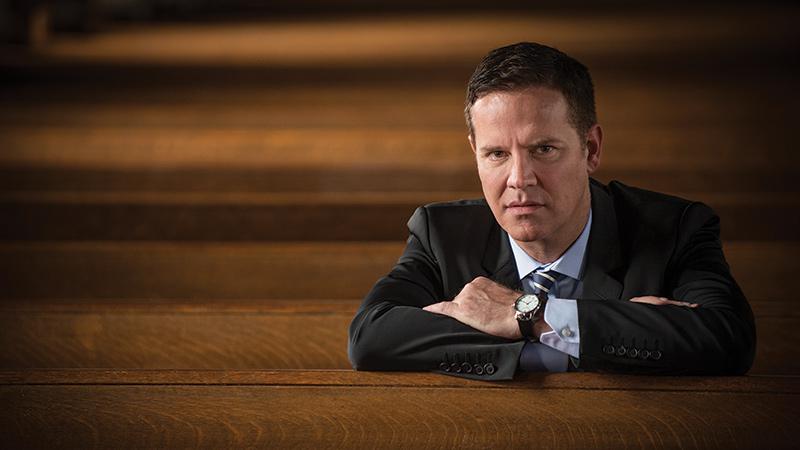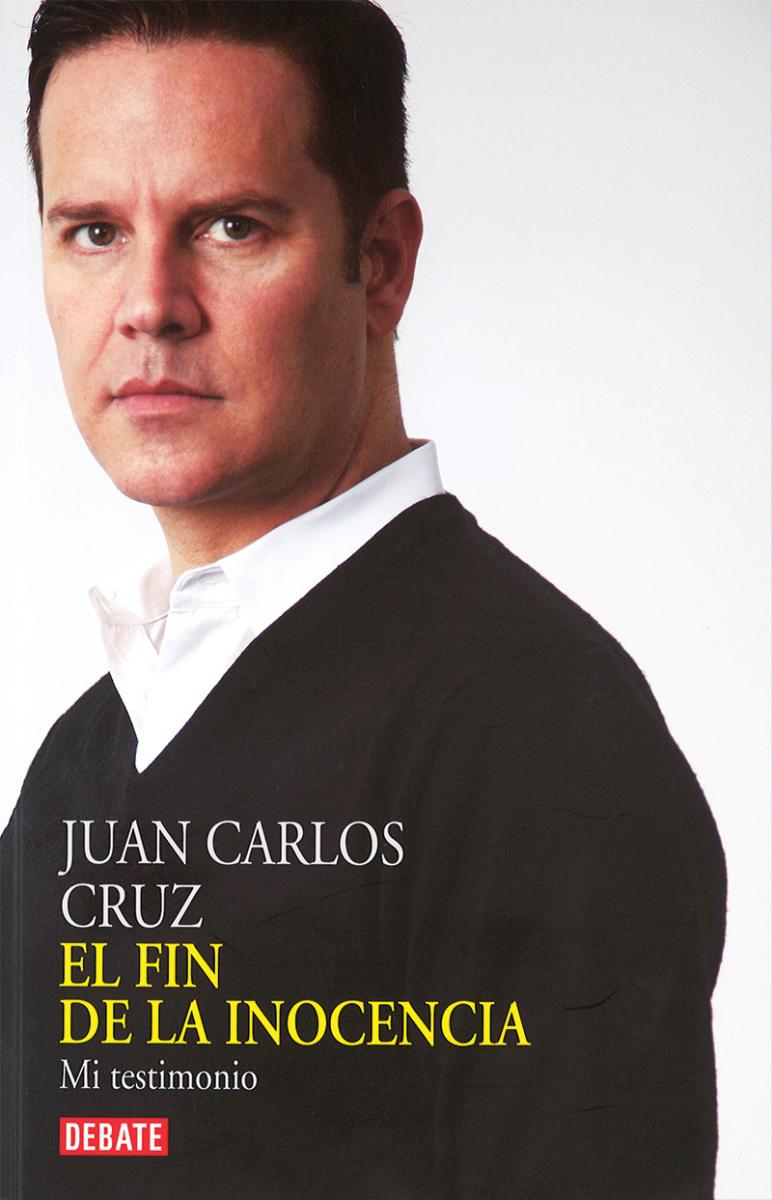|
DuPont Executive Speaks Out About Sexual Abuse
By Suzanne Sczubelek Herel
Juan Carlos Cruz was a young seminarian in Santiago, Chile, when he decided he had to die. “I thought of jumping off a building. I was thinking of what would be the best way and the fastest, so it wouldn’t hurt so much,” recalls Cruz. “Thank God, I came to my senses and recovered.” At the time, Cruz was suffering through his sixth year of sexual abuse at the hands of the Rev. Fernando Karadima, a powerful, charismatic ally of former dictator Augusto Pinochet. The emotional scars of his ordeal may never heal. So he’s decided to embrace them in a crusade to hold the Catholic Church accountable for ignoring abuse claims. Now based in Delaware as the global head of communications for DuPont’s crop-protection division, Cruz wants to protect potential victims. Along with two other men victimized by Karadima in the upscale El Bosque (The Forest) neighborhood, Cruz is a plaintiff in a civil lawsuit pending against the Santiago diocese. He’s joined by two others: Jose Murillo reported his abuse in 2003 to Cardinal Francisco Javier Errázuriz, who initially took no action; Chilean physician James Hamilton’s nightmare stretched over 20 years—even after he’d married and started a family. Cruz, who now makes his home in Philadelphia, recounts his experience in a Spanish language memoir, “El Fin de la Inocencia” (“The End of Innocence”), published in June by Random House. The book swiftly shot to best-seller status in his home country and was on its third printing in as many months. A movie (“El Bosque”) is in the works about Cruz’s life, and his book is ready to be translated into English and sold in the United States. Meanwhile, the Catholic Church’s stronghold in Chile hasn’t fared well. “The opinion of experts is that, mainly because of this case, the approval rating of the church has declined strongly from five years ago,” says Juan Pablo Hermosilla, the lawyer handling the suit. “It’s among the most criticized institutions in Chile. This was a turning point.” The civil suit is the latest iteration of a court battle involving Karadima, now 84. After years of silence from church officials, the men filed a criminal complaint against Karadima in 2010. (A fourth plaintiff was dropped when the abuse was deemed to have occurred when he was an 18-year-old adult.) After seven months, the complaint was dismissed by the court on the grounds there wasn’t enough evidence. But Cruz and his fellow accusers had opened the floodgates. Errázuriz finally took action, sending a reported 700-page file to the Vatican, detailing accusations of sexual abuse that went back three decades. Following a church investigation, Karadima was ordered by the Vatican into a secluded “life of prayer and penitence.” He was sent to live in a convent and forbidden to perform any priestly functions, including Mass and confession—though he’s been photographed flouting that last condition. In 2011, Chile’s appeals court appointed Judge Jessica González to take testimony and decide whether Karadima had broken the law. In the end, she concluded Karadima could not be prosecuted because the statute of limitations had expired. Instead, she issued an unusually lengthy 84-page report confirming the abuses. “At the end, she put [that] everything was true that had happened,” says Cruz. “She made all the connections. She left it there ready for us to kick it forward.” Hermosilla is in the process of producing witnesses and evidence. He expects a first ruling in the civil case by August or September. “At this stage, we can gladly say that our demands, our complaint, is supported by public citizens,” he says. That approval goes as high as Chile’s president, Michelle Bachelet. Shortly after the publication of his book, Cruz received a letter from Bachelet, along with a virtual “fraternal embrace.” He translates a passage from her letter: “Having this book in my hands with the testimony of the most painful and piercing horror of your life is, without any doubt, an honor for me. Your testimony is the testimony of a courageous man—a man who, with his story, is breaking the cornerstone of abuse: its silence. It is, too, the story of a fighter. A man who has not let go of anything to seek truth and justice.” The case of Juan Carlos Cruz didn’t begin with widespread support. When he came forward five years ago, some accused him of lying to try to destroy the church. Others said he’d seduced Karadima himself. “Those who didn’t support us were extremely cruel and powerful people,” he says. Then Cruz, Murillo and Hamilton appeared on an investigative news program in their home country. “It was impressive because everybody thought that victims would never show their faces,” says Cruz. “And we were there, crying in front of the camera and being sincere. The tide turned immediately, because people saw the suffering and the truth.” Born in the 1960s to loving parents who soon brought two younger brothers into the family, Cruz recalls a close to idyllic childhood. From the first grade, he developed a deep love for God. Inspired by a schoolteacher’s stories about famous saints, he began dreaming of becoming a priest and traveling as a missionary to far-flung places to help the poor, lepers and other outcasts. When Cruz finally did enter the seminary, he realized some of that dream, aiding the Missionaries of Charity, which led to him serving as Mother Teresa’s English translator on her trips to Santiago. In 1970, Cruz’s father moved the family to Madrid following the election of socialist Salvador Allende, returning only after the president’s death in 1973, when Pinochet seized power. Cruz was 15 when his father died, within a year of being diagnosed with melanoma. Adrift and looking for comfort, Cruz had heard of the famous pastor of the Parish of the Sacred Heart, described by some as a living saint. He visited the church several times before Karadima deigned to speak with him. Quickly thereafter, Cruz was welcomed into the fold of Karadima’s closest circle of young boys—initially to his delight. What first seemed like the most coveted club, however, soon became a prison. At one point, Cruz—who is gay—revealed some of his sexual urges to Karadima during confession. Karadima used the knowledge as a weapon, threatening to destroy the boy’s life if he disobeyed. “It’s very hard to forgive myself,” says Cruz. “I think the question that everybody asks themselves is, ‘Why did I let this happen?’ I was bewitched by this person, in away. And I was so vulnerable after my dad died.” Cruz was aware that he wasn’t the only one receiving such attention from Karadima. “He took turns on all of us,” he says. “He would say, ‘I want to be with Jimmy,’ and we all knew what he wanted to be with him for.” Hermosilla estimates that Karadima’s victims number in the hundreds. Cruz knew some who committed suicide. Others had families of their own and refused to talk publicly. Still others became priests, who, themselves, went on to be accused of sexual abuse. There was one young man who could have beaten the statute of limitations, allowing the criminal complaint to move forward. “[But] he was so desperate and about to jump off a bridge, so we were not going to let him talk,” Cruz says. “He never talked, but we saved him.” Cruz is no stranger to such fear. After leaving the seminary, he studied journalism and became an anchor on a Chilean TV station. “I got a call one day when I was anchoring the news,” he says of the fateful Saturday. “It was someone who said, ‘We know you’re a faggot, and we’re going to tell everybody, and we’re going to ruin you.’” He resigned three days later. Soon, Cruz began working for United Airlines and moved to the U.S., where he landed with a succession of high-powered companies and hoped to leave the past behind. “I try to put my abuse and horror in a compartment that doesn’t bother me too much all the time,” Cruz says. “When we decided to go public with the story, I debated doing it because I had built my life here, and I didn’t want anything bad to penetrate it.” He recounts a particularly memorable conference call with Hamilton, Murillo and his attorney. Hermosilla asked to speak with Cruz alone afterward. “He said, ‘You’re gay. They’re going to destroy you. They’re going to use that and drag you through the mud, and I know you’re very protective of your life. So I want you to think very hard if you should do this.’” Cruz recalls the feeling of his life passing before his eyes. “I said a very scared ‘I’ll do it,’ but I said, ‘I’ll do it.’” His lawyer, for one, commends the decision. “Especially for the first two years of the case, we had lots of decisions to make and confront, and he was the key steppingstone,” says Hermosilla. “I think he’s done a wonderful job, and he’s been very generous. You can tell he’s not after the church because he has anger. On the contrary, he thinks positively. He doesn’t want this to happen again. They’ve all been clearly instructing to move forward in a way that improves the safety and conditions of young people close to the church.” Delaware lawyer Thomas Neuberger calls Cruz “courageous,” adding that just one in 10 such victims ever comes forward. Author of “When Priests Become Predators: Profiles of Childhood Sexual Abuse Survivors,” Neuberger represented 99 of 146 victims who won a $77 million settlement from the Delaware Catholic Diocese of Wilmington in 2011. “It’s extremely difficult for people to rip the Band-Aid off the wound, and let the wound fester,” he says. “The effects just ripple through their lives.” Even today, Cruz remains strong in his faith, attending an Episcopal church near his home every Sunday morning, after he couldn’t find a Catholic congregation he liked. “It’s the most welcoming, loving community—which has really helped me heal,” he says. “They saved me in many ways.” As for his fellow accusers, they want nothing to do with any church, even refusing to baptize their children, says Cruz. “One of the things that I’ll never let these monsters do is take away something that’s kept me alive. I’m not going to let them win,” he says. “My relationship with God is personal, and nobody can mess with it.” Cruz also has great things to say about his employer. “I couldn’t have done this without the support of DuPont,” he says, noting that CEO Ellen Kullman and DuPont Crop Protection president Rik Miller keep tabs on him. “Ellen has cared for me; Rik has cared for me. Every employee there who knows my story has treated me with the utmost respect.” To help other victims, Cruz, Hamilton and Murillo formed the Santiago-based Fundación Para la Confianza (Foundation for Trust). “That’s our way of giving back,” he says. With his civil suit, Cruz wants the Catholic Church to accept responsibility for looking the other way, issue a sincere public apology to the victims and provide reparations based on the severity of each case. “These three things will help set the precedent for hundreds of victims who come from poor areas and are abused,” Cruz says. “We were lucky—we have the best lawyer. We want to set this precedent so others can come forward. They look up to us to do it. It’s a burden and it’s painful, but it’s something I feel I have to carry on until I die, if I need to.” Cruz also fought for an antidiscrimination law recently passed in Chile, where he spoke to a crowd of 80,000. “I was shaking, but the people were really amazing,” Cruz recalls. “Ever since that, I’ve become an activist without wanting to. They stop me wherever I go, and they hug me—poor people, which is the most beautiful thing. They stop and say, ‘You saved my son.’ That is why I do this.”
|
.
Any original material on these pages is copyright © BishopAccountability.org 2004. Reproduce freely with attribution.


